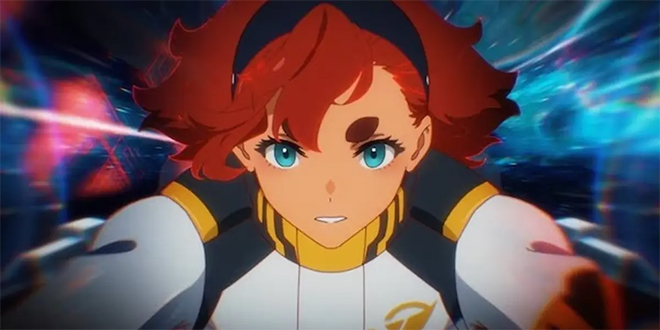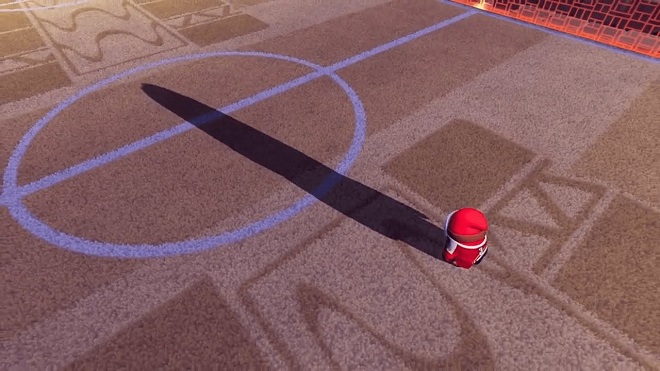Quarantine Control #170: Sheltered Soldiers from Mercury

This year’s Independence Day was a nice opportunity for a bunch of Americans to relax, so to speak. The holiday fell on a Tuesday, thus creating a four-day weekend for a bunch of people (though hardly everyone). That’s “so to speak” because the news cycle never stops, and it’s not as if anyone could really rest with all the fireworks. Depending on your neighborhood, you were either subjected to a subdued spectacle or a seemingly non-ending stream of shotgun-like blasts from clearly-illegal fireworks. You have to wonder how some of these people have the disposable income for them.
Geoffrey Barnes
Silo — Season 1 (2023)
Source: Apple TV+
Episodes: 10

The aspect that interested me most in the Silo series upon reading the synopsis, seeing the promo shots, and watching the trailer? How it all sounded eerily similar to a Fallout Shelter series. This show taking place entirely within a shelter in a seemingly post-apocalyptic world adorned with the kinds of rustic and dreary aesthetics that occupy such locations, focusing on the trials and tribulations of the humans involved, made this sound unmistakably like an adaptation of the mobile video game with its own unique story. It is worth noting that this show is based off a series of books by Hugh Howey, all of which predate Fallout Shelter. The only aspect that appeared to be missing were the Vault Tec outfits and mascots, including the ever-popular Vault Boy.
It’s even more humorous that Silo pretty much is this outside the aforementioned differences, humorously arriving well before the Amazon Prime Video adaptation of the Fallout series. It’s also, besides that, one of the best shows to air on TV and streaming this year.
The series primarily focuses on Juliette Nichols, with actress Rebecca Ferguson being the centerpiece of many promos, but the first episode throws viewers through a loop by focusing instead on Allison (Rashida Jones) and her husband Sheriff Holston (David Oyelowo). The two are intent on having a baby, and the birth control mechanism within Allison’s body is undone to allow her to do so — itself a peculiar conundrum. But this, in so many words, is the catalyst for Allison wondering if there’s more the political leadership in the shelter’s mayoral and judicial offices aren’t telling them. Allison’s role isn’t large, but her story kicks off the overall tale, with the lead role shifting to Juliette by the first episode’s end. The focuses of the story involve the mystery regarding how Juliette’s partner, George Wilkins (Ferdinand Kingsley) really died, the fates of Allison and Holston, and the true nature of the outside world.
Human beings cannot live without some kind of class system, which lies at the heart of the corruption that drives this tale. Juliette seeks to discover this to light a match in the proverbial room full gas tanks to ignite a revolutionary way of thinking within the people, but doing so involves making allies and several powerful enemies. Several characters are introduced throughout the tale, nearly all of them well written and well acted. Not every facet of the tale is shown on screen, but it’s the hallmark of a well-told story that the series didn’t need to show anything to feel fulfilling from character development and worldbuilding standpoints. There wasn’t a single point in which I saw a scene or flashback (and there’s no shortage of the latter) that I felt was unnecessary.
That’s assisted by the superlative acting quality. I had trouble figuring out if Ferguson was supposed to be playing an American woman or a Swedish one who’s been around Americans for too long, because her accent slipped out on several occasions. But that didn’t matter when she brought so much to the performance. This is also one of the best performances I’ve seen Rashida Jones provide, whose small role despite her large impact made me wish she had a larger one despite her perfect place in the story. But it was Tim Robbins’ role as Bernard Holland that impressed me the most, particularly during the series’ latter half. The only weaker link in the series was Common’s role as Robert Sims, whose acting chops aren’t on par with the others. But that’s “weaker” because he was hardly bad, especially late in the series.
Silo carefully established the world within the titular and supposed fallout shelter and developed its characters, emphasizing the oppressive and controlled dystopian atmosphere. It similarly made room to develop its characters and establish their motives, outlining each faction. It’s a pity this generated complaints about pacing issues and the lack of a sole focus on the mysteries surrounding the death of Juliette’s partner and the reality of the outside world, but it’s slow moving for good reason. Our current levels of media literacy are a tragedy.
I’m glad Silo found a large-enough audience for Apple to green light it for a second season before the first season’s finale, and I have to again say that it’s one of the best shows this year and one of the best (seemingly) post-apocalyptic shows around. So many series have been cancelled before they fully began that I wasn’t starting this before I learned of Apple’s faith in it, a good decision considering the ending is one of the biggest teases for the next chapter in a story I’ve seen in a long time. But that emphasizes the faith the production team and showrunners had in the work, and I’m hopeful that will carry into the show’s future.
Angela Moseley
Mobile Suit Gundam: The Witch From Mercury, Season 2 (2023)
Source: Crunchyroll
Episodes: 12

The first season of Mobile Suit Gundam: The Witch From Mercury left off on one hell of a cliffhanger. The sudden shift from a series with a lighter tone to something much darker let everyone know this was a show written by Ichiro Okouchi. My biggest concern going into season two was that the end of the series would conclude in a rushed, unsatisfying way. Much like Valrave the Liberator let me down. I was wondered if season two was even the end, as the show had a lot story to tell, and another ten episodes would have worked just fine. Turns out this series was only to be two seasons total. There was a lot of story left on the table, and more could have been told. Nevertheless, The Witch From Mercury tells its tale well.
Two weeks after the devastation from the attack on Plant Quetta, the entire incident has been covered up. The majority of the Earthians responsible for the attack not only escape, but two of them join Asticassia as transfer students. Meanwhile, things are going well for Suletta as she continues to duel and win against students interested in taking her title as the holder. In the background, Belmeria a member of the Peil Technologies group confronts Prospera and learns the truth about the Gundam, Aerial. At the same time, Miorine learns about the project “Quiet Zero” from an associate of her father’s just as the relationship between Earth and Space further deteriorates.
Season 2 of The Witch from Mercury does its best to tie up many of the loose ends from the first season. My only issue is that story was sacrificed in the rush to finish the show. How did the relationship between Earth and Space originally break down? It is directly stated that Space is a place for the elites, while living in space can be harsh. We also never get to see any of Suletta’s home on Mercury. It would have been great to see some of the story from the online novella make its way into the anime.
In terms of Prospera, we never really learn how she cultivated her connections. How did a woman who lost everything except her child and her Gundam in an attack, cultivate so many powerful relationships? It is just vaguely stated that she may have worked with Delling Rembran at some point. I would have loved to see more of that relationship fleshed out. Did Delling not know who she was, or did he give her a pass out of guilt for the events in the prologue? I would have also loved to have seen more from the Earthians’ perspective and from the perspective of their Spacian collaborators.
In terms of the main cast of teenagers, most of their stories wrap up satisfyingly. Guel’s character arc is finished, and his journey is quite heroic. His character development sees him becoming a better person by series end. Miorine’s character development works too, and she becomes less cold, even if she’s just as calculating. Other characters learn to lean on each other for support instead of going alone. Yes, even this dark series has spots “the power of friendship,” but it works because they genuinely had to overcome tragedy. Elan Number 5 remains my favorite character in this series besides Suletta and Miorine. He still has a selfish and wicked side, but he finds it within himself to give another person something to live for and lives by his own words.
By far Suletta sees the most growth. To borrow a phrase from Super Eyepatch Wolf’s Jojo’s Bizarre Adventure: Stone Ocean video, Jolyne Suletta becomes a badass. Yes, she was an ace pilot in the first season, but she was extremely reliant on Aerial and her mother. When those two are taken away from her, she’s forced to stand without them. And Suletta rises marvelously to the occasion. She isn’t living for someone else, and she’s no longer pawn. She finally decides what she wants from life and goes for it, doing what she believes is right. I’m incredibly satisfied with her character development. As a nice bonus, this anime avoids the “bury your gays” trope nicely.
Again, I feel as if Mobile Suit Gundam: The Witch From Mercury could have used another season. That said, it avoids the curse of feeling too rushed and cleans up most of its plot points. It is an enjoyable show that gets incredibly dark at times, but manages to find the light. This alone is amazing since this is a show written by Okouchi. This is still a fantastic Gundam series from start to finish. If you’re a fan of the franchise, The Witch From Mercury is worth your time. Even if you’re just a fan of mech shows or social commentary, I’d suggest checking this one out.
Joseph Daniels
If there’s one thing that I wish I had been covering more over the past few weeks when I was distracted with the release of Final Fantasy XVI, it’s the current Hollywood Writer’s Strike. One of the biggest issues that writers are trying to address is the role of AI in the preparation of scripts. AI has come a long way when it comes to imitating human input, even if it still requires a little bit of intelligent human output after the fact. There’s a reason that studios would still want actual humans to go over an AI completed script, and that’s one of the things the Writers Guild of America is worried about. It pays less to read through and correct a script written by an AI than it does to write a script yourself, and you’d better believe that capitalists are going to look at that and think “Yeah, why are we paying writers to write these, when it’s cheaper to do it the other way?”
So it’s interesting that the first thing I’m talking about after my Final Fantasy break is a series that, while it doesn’t offer AI commentary directly, it’s a good source of commentary because of who one of its voice actors is. Since I don’t address it in the actual write up, I’ll briefly mention it here: the series is about a small group of humans fighting a war on an alien planet full of rodent furries on behalf of their dog and cat overlords. Think of it as five human OCs in Science Fiction Armello World, or sort of a cross between Armello and Larry Niven’s Man-Kzin Wars.
Yakitori: Soldiers of Misfortune (2023)
Source: Netflix
Episodes: 6
Rabbits?: Admin AI Hatsune Mimi

And now you see. The Admin AI in Yakitori is played by (and mostly named for) Vocaloid “actress” Hatsune Miku. While watching Yakitori, I couldn’t help but wonder if original voice actress Saki Fujita gets any sort of royalty cheque for this, but this sort of information has, as far as I can tell, never been shared. What this means is that, although the series seems to have otherwise employed human actors in all of its dubs, the Admin AI is voiced in all versions by Hatsune Miku, using subtitles for all of its foreign language versions rather than trying to get her to “speak” in other languages. There are actually Chinese and English versions of Hatsune Miku, but I guess the studio didn’t want to buy those versions when the original Japanese version is the most famous.
Although information on Fujita’s royalties for the use of her voice in Hatsune Miku’s projects is hard to find, it’s believed that she doesn’t earn anything beyond whatever fee she was able to get for lending her voice to the software. That said, there have been roles that have used Hatsune Miku’s character for which an original recording was needed and I’m assuming Fujita does get paid for new original recordings. However, Yakitori seems to have been made using the existing Vocaloid software, which would suggest to me that Fujita gets paid nothing for her vocal likeness being used in the anime.
The only good news about this rise of Vocaloid technology is that it’s still considered somewhat of a novelty, even a decade and a half after the initial release of Hatsune Miku. It should also be considered a good thing that the Japanese language is a lot easier to AI generate than the English language is, thanks to how much simpler the rules of the Japanese language are compared to English (look at any YouTube video using AI generated text to speech and you’ll see what I mean). At the very least, it’d be a lot harder to come up with a fully voice acted episode of something which sounds natural and is fully voiced by English-speaking AI. There are sites like Uberduck which let you come up with original voice lines by existing characters like Tracer from Overwatch, Cave Johnson and GLaDOS from Portal, Mufasa from The Lion King and so on, but sites like those are unofficial and the voice actors who lent their voices to those roles would be getting absolutely no money from such uses.
I can see why one might turn to a site like Uberduck, too. None of the aforementioned voice actors are available on Cameo, a website which features many such actors who make themselves available for a fee to read from a short script provided to them. That said, James Earl Jones might not be available, but the voice actor for Pumbaa, Ernie Sabella, is. And instead of Tracer (Cara Theobold), I was able to find Sigma (Boris Hiestand) on the website, willing to accept a fee to say something for you. Many prominent Star Trek actors are present on the site as well, actors such as Jeri Ryan, Jonathan Frakes, Nana Visitor, Robert Picardo… browsing the search results brings up a lot of big name stars, of which these are but four of them. Several members of the main cast from nearly every Star Trek series (even Star Trek: Picard) are available to make videos or read out messages. Videos, naturally, cost more, but short messages are pretty affordable for special occasions if you can’t afford a full video.
Anyway, even though AI programs that write scripts are at the forefront of the current writer’s strike, the existence of a free website like Uberduck as direct competition to Cameo, as well as Hatsune Miku being able to find work that ordinarily should be going to a live human, indicates to me that maybe there should be a strike among voice actors in order to address concerns about AI generated voice clips. What would it mean to the industry if studios decided to give in to the writers and pay them more, but then turn to AI for voice work instead?
This week’s short film is a compilation of the first four “parts” of episode one of a project called Vixen Park, which is a reimagining of the online comic Professor Amazing and the Incredible Golden Fox, and its use of voice acting is mainly provided by the creator, filtered through AI rather than being provided completely by AI. Some of the voice work does sound a little off as a result, but not as much as you’d expect. This may be one route used to make AI voices sound more natural in English in the future, but while I have reservations with major studios going this route in lieu of actually paying a full cast of professional voice actors, this seems like it would be perfect for the world of independent YouTube creators looking to show off some of the work they’ve done as proof of concept, before hiring actual voice actors for their project. AI modified voice work would certainly help for creating a funding pitch when shopping a new IP around.
This Week’s Short Film
Vixen Park, Episode 1 (in progress; 2023)
The start of this month is already a sure signal that this will be one of the hottest Julys in recent memory — perhaps in history. It’s a shame that we, as a society, couldn’t do anything to prevent the planet’s temperatures from warming to intolerable levels. Try to stay cool until next week.





